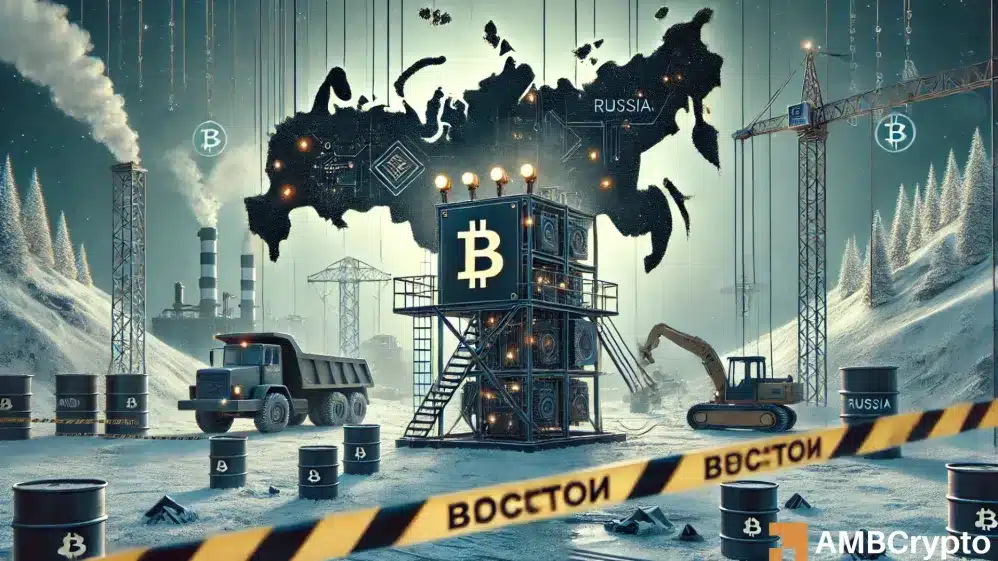Russia bans crypto mining across key regions as world debates Bitcoin reserves

- Russia has banned crypto mining in 10 regions, citing energy demands and pricing disparities
- Putin acknowledged Bitcoin’s potential, signaling a shift towards balanced digital asset regulations
As discussions heated up around U.S President Donald Trump’s plans to establish a Bitcoin [BTC] reserve, other major powers like Russia and China also hinted at similar moves.
Russia bans crypto mining
However, in a surprising twist, Russia has now announced a ban on cryptocurrency mining in 10 regions. This ban is set to take effect from 1 January 2025.
This restriction, slated to last six years until 15 March 2031, signals a contrasting approach to digital assets. It highlights the varying global positions on cryptocurrency regulation and adoption.
In fact, a recent report by the TASS Russian News Agency revealed the 10 regions. These included Dagestan, Ingushetia, Kabardino-Balkaria, Karachay-Cherkessia, North Ossetia, Chechnya, the Donetsk and Lugansk People’s Republics, and in the Zaporizhia and Kherson regions.
Additionally, temporary restrictions will be imposed on certain areas during peak energy demand periods. These will include the Irkutsk region, Buryatia, and the Trans-Baikal Territory.
What’s behind this?
According to officials, this decision to impose restrictions on crypto mining is aimed at addressing regional energy demands, while also resolving disparities in electricity pricing.
For example – Sergey Kolobanov, Deputy Director of the Center for Economics of Fuel and Energy Complex at the CSR, highlighted that maintaining low electricity prices in certain oblasts often leads to higher costs for other consumers – Creating an imbalance.
Regional policy specialist Vladimir Klimanov supported this position. According to him, establishing equitable electricity pricing across the country to ensure fairness and stability in the energy market is important.
He said,
“Traditionally, residents and businesses in central Russia actually pay part of the costs that arise due to low electricity tariffs in the regions of the North Caucasus or the Far East.”
Klimanov added,
“The measures introduced by the government should contribute to more equitable conditions for doing business in such a specific area throughout the country.”
Russia is not completely against crypto
Here, it is worth noting though that the mining ban does not mean that Russia is entirely closing the door on digital assets.
In fact, Russian President Vladimir Putin recently acknowledged the growing prominence of cryptocurrencies like Bitcoin. He recognized their transformative potential within global financial systems.
Speaking at the Moscow Investment Forum on 4 December, Putin’s comments reflected a shift in perspective. Opinions have transitioned from criticism of Bitcoin to a more balanced position, one that stops short of outright prohibition.
He put it best when he said,
“Who can ban Bitcoin? Nobody. And, who can prohibit the use of other electronic means of payment? Nobody. Because they are new technologies.”
This evolving outlook means that Russia may yet find a way to harmonize its regulatory framework with the opportunities presented by digital currencies.






